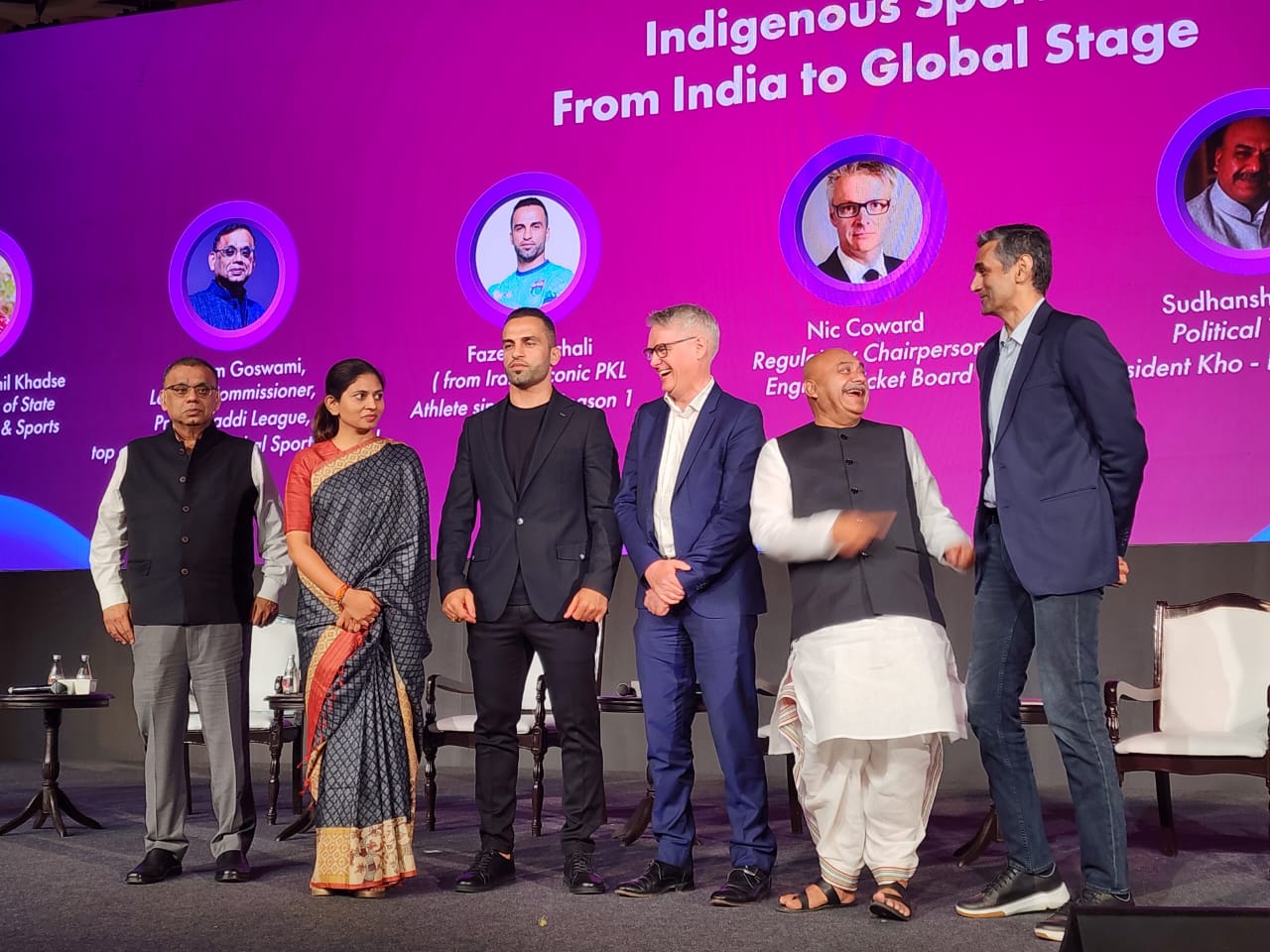Mumbai, May 6, 2025: The World Audio Visual and Entertainment Summit (WAVES) 2025 hosted a groundbreaking panel session on Indigenous Sports: From India to the Global Stage’, bringing together key figures from government, sports administration, and global sports strategy to discuss the remarkable transformation of India’s traditional games into global sporting sensations
The session was kicked off by Odisha Chief Minister Shri Mohan Charan Majhi, followed by insights from a distinguished panel featuring Smt. Raksha Nikhil Khadse, Union Minister of State for Youth Affairs and Sports, Govt of India; Mr. Anupam Goswami, Business Head of Mashal & League Chairman of Pro Kabaddi League; Mr. Sudhanshu Mittal, President, Kho Kho Federation of India; Mr. Nic Coward, Sports Consultant; Mr. Yannick Colaco, Co-Founder, Fancode; and Mr. Fazel Atrachali, Iranian Pro Kabaddi League star.
Pro Kabaddi League’s phenomenal success story was a key point in the discussion, with Business Head of Mashal & League Chairman of Pro Kabaddi League, Mr. Anupam Goswami revealed staggering figures that underscore the untapped potential of indigenous sports. “The transformative journey of indigenous sports has been remarkable, with Kabaddi emerging as a global phenomenon. From its early recognition at the Asian Games to its landmark partnership with JioStar, Pro Kabaddi has evolved into a major force in the sports ecosystem,” he said.
“Highlighting the 2024 season, which reached 201 million viewers, we’re seeing growing traction for Indian indigenous sports. While the global stage remains a key aspiration, the real opportunity lies in unlocking the potential of India’s vast and diverse market. Indian indigenous sports are not just games — they represent a powerful, untapped opportunity for growth and engagement,” Mr. Goswami stated.
The human impact of this transformation was powerfully conveyed by Fazel Atrachali, captain of the Iran national Kabaddi team and Pro Kabaddi League star, who offered a moving testimonial to PKL’s life-changing influence.
“The history of Kabaddi can be divided into two parts: one is the Pro Kabaddi League, and the other is before PKL,” said Atrachali. “Before the PKL, Kabaddi was played every 4 years at Asian Games or occasionally at the Asian Championship. People would notice us during the tournament but afterward, they would forget.”
Sharing his personal journey, the two-time PKL winner said, “In 2014, I wanted to leave Kabaddi because I thought it wouldn’t change my life. I needed money, a house, and a family. Every 4 years I go to Asian Games, but nothing happens for me. After that, they invited me to play in the PKL, and I was so lucky.”
The impact extends far beyond individual athletes, as Atrachali explained, “Not just me or other Indian players, but also players from other countries – we are so happy. We came to play in the Pro Kabaddi League, and they have made us stars. Many players are now on TV, and seeing this brings joy to their families. They can watch their children on TV. Because of the PKL, they have money now.”
“We have recently witnessed our indigenous Indian games like Kabaddi, Kho Kho, Lagori, Mallakhamb, and Yogasana gain traction on a global platform. I would particularly like to thank Mr. Goswami and Mr. Mittal, as people like them have come forward and have worked hard to advance our traditional games.
The Indian Government is also making its best efforts because our hon’ble Prime Minister Modi wants India to progress in sports by taking our traditional games to the whole world,” said Smt. Raksha Khadse.
Adding to this, keynote speaker Shri Mohan Charan Majhi, Chief Minister of Odisha, heaped praise on the efforts of the PKL in promoting India’s indigenous sports. “We must acknowledge the remarkable resurgence of traditional sports like Kabaddi. Thanks to initiatives like the Pro Kabaddi League, the sport has captured the imagination of millions across India,” the Chief Minister stated.
“We have brought Kabaddi into living rooms and into the hearts of people everywhere. What was once only played in small communities has now become one of India’s most popular and commercially successful sporting leagues, inspiring young boys and girls across the nation,” he added.
As the Pro Kabaddi League enters its 12th season, India’s traditional games are poised to become the country’s next major export to the global sports and entertainment industry.



